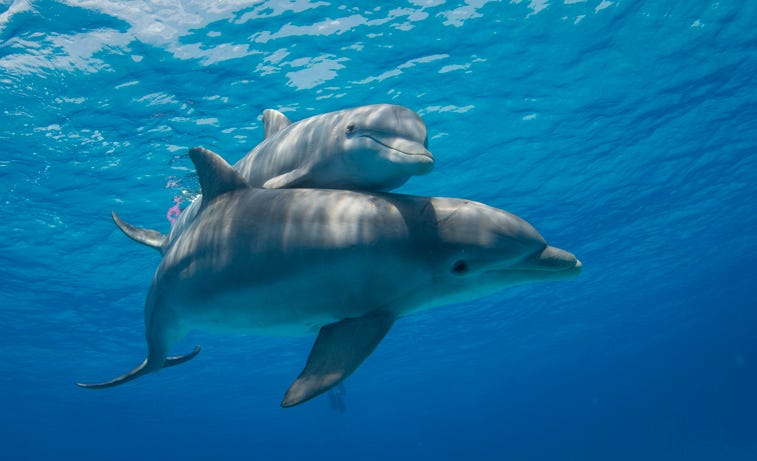
A new study says climate change is making life tougher for marine mammals like whales, dolphins and seals.
Researchers with the National Oceanic and Atmospheric Administration say more than 70% of the marine mammal population is facing a lack of food and loss of habitat due to climate change.
While warming ocean temperatures may be one of the greatest threats, the study says climate change could cause rising sea levels, decreasing dissolved oxygen, declining sea ice coverage, ocean acidification, and salinity changes -- all of which affect the distribution, behavior and movements of marine mammals.
To better understand climate-related threats to marine mammals, researchers conducted an analysis of 108 United States marine mammal stocks in the western North Atlantic, Gulf of Mexico, and Caribbean Sea. The regions are all expected to experience a high degree of climate and environmental change by 2055, according to the study.
The trait-based assessment estimated a species' vulnerability to climate change based on two categories: exposure and sensitivity. "Exposure" refers to the projected change in environmental conditions across an animal's geographic distribution, while "sensitivity" refers to an animal's ability to tolerate and adapt to changing conditions.
The researchers found that 72% of cetacean (whales, dolphins, porpoises) and pinniped (seals, sea lions, walruses) stocks are highly or very highly vulnerable to climate change; 44% of marine mammal stocks had a "very high" climate vulnerability score.
"All populations protected under the Endangered Species Act were found to be either very highly vulnerable or highly vulnerable to climate change," the NOAA said in a statement. "Many populations designated as either 'depleted' or 'strategic' under the Marine Mammal Protection Act also scored as some of the most vulnerable."
The study found that ocean temperature, acidity and dissolved oxygen were the primary drivers of high climate exposure, altering availability of prey and habitat for marine mammals. Researchers also noted that changes in water pH and temperature can change sound absorption and transmission, affecting echolocation among species who use it for communication, hunting and foraging.
The North Atlantic right whale, Rice's whale and common bottlenose dolphins are the most at-risk species, according to the study.
"Using a systematic approach allowed us to look across all of these stocks and better understand what drives their vulnerability to climate change," lead author Matthew Lettrich said in a statement. "We can now go out and look at some of these individual responses to climate change, and explore approaches to reduce the impacts of climate change on these vulnerable populations."
The study was published in the journal PLOS ONE.
